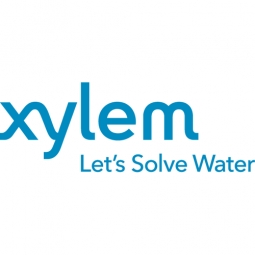Case Studies
-
(3)
- (1)
- (1)
- (1)
- View all
-
(2)
- (1)
- (1)
ANDOR
- (2)
- (1)
- (1)
- (1)
- (1)
- View all 5 Industries
ANDOR
- (1)
- (1)
- (1)
- (1)
ANDOR
- (2)
- (2)
- (1)
- (1)
ANDOR
- (3)
- (1)
ANDOR
- (4)
ANDOR
Please feel encouraged to schedule a call with us:
Schedule a Call
Or directly send us an email:
Compare
|
|

|
Artificial Intelligence Based Risk Solution Reduces Replacement Costs
With water main breaks increasing, utility customers were experiencing unpredictable service outages, costly repairs, and highly disruptive road closures. To improve its reputation and customer service, the utility wanted to be more proactive in its water infrastructure management and prioritize pipes that needed the greatest attention.
|
Download PDF
|
|
|

|
Xylem's Comprehensive Fire Protection Solution for Canadian Paper Pulp Mill
The pulp and paper market, valued at USD519 billion in 2019, is projected to reach USD680 billion by 2027. With this rapid growth, safety standards, particularly fire protection, have become a priority. Paper dust, a byproduct of the manufacturing process, is highly combustible, leading to the risk of dust explosions at manufacturing facilities. A paper pulp mill in eastern Canada recognized the need for enhanced fire protection at their facility. The existing system, a vertical turbine pump, was insufficient. The facility managers sought a more comprehensive solution that would meet the future demands of the mill and provide peace of mind.
|
Download PDF
|
|
|

|
Advanced Analytic Solutions for State-Wide Monitoring Program: A Case Study of Air Selangor
Air Selangor, a large water distribution company in Malaysia, was grappling with a high rate of non-revenue water loss, which stood at 33.3 percent in 2017. The company's aging infrastructure was a concern, and it was keen on reducing leaks and bursts and identifying the causes of pressure surges to mitigate the damaging transients that could reduce the lifespan of its pipes. The company used various techniques to identify leaks and bursts, but the response time was not quick enough to minimize the runtime of leaks/bursts and the disruption caused. The remote geographical location of its trunk main network often led to a long runtime of leaks before discovery. Pressure transients were known to be an issue within the network, but without information on their sources or causes. The company also noticed that leaks often recurred on the same pipelines, causing concern and harming the utility’s reputation. Air Selangor was actively seeking innovative ideas for continuous monitoring to identify leaks and pressure surges earlier, reduce non-revenue water loss, and improve customer relations.
|
Download PDF
|
|
|

|
Risk-Based Asset Management Approach Prevents PCCP Failures And Saves Utility Over CA$1 Million
The Lake Huron and Elgin Area Primary Water Supply Systems in southwestern Ontario, which provide water for approximately 500,000 residents across 15 municipalities, faced a significant challenge with their Lake Huron Primary Transmission Main. This 60-kilometer pipeline, constructed in 1965, experienced four catastrophic failures over the past 55 years, disrupting the supply of drinking water to a significant portion of southwestern Ontario and causing serious flooding. The failures also affected approximately 70 hectares of prime agricultural lands due to soil erosion and deposition. The utility decided to take a proactive approach to managing risks associated with the pipeline, starting with assessments to better understand the main’s baseline condition and then monitoring the pipeline continuously.
|
Download PDF
|
